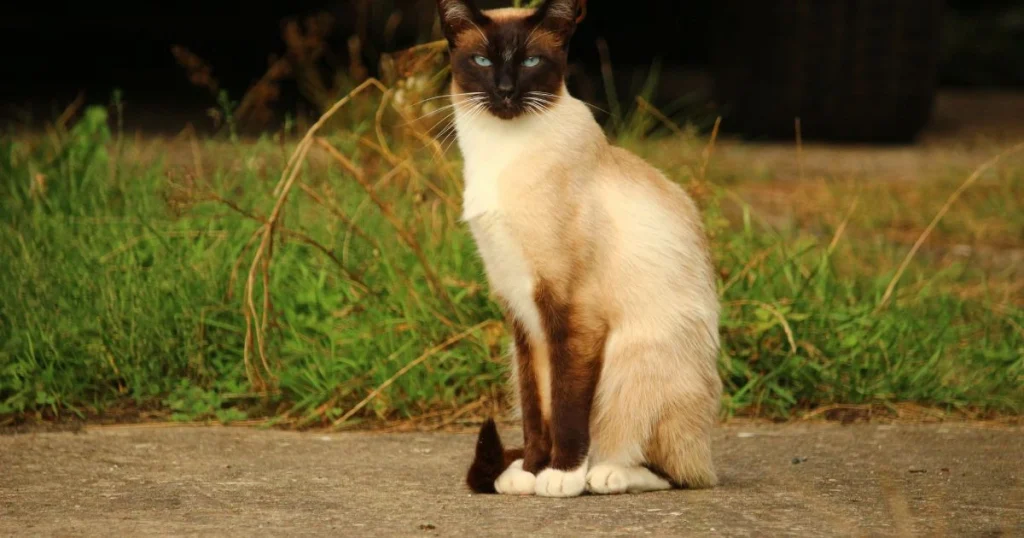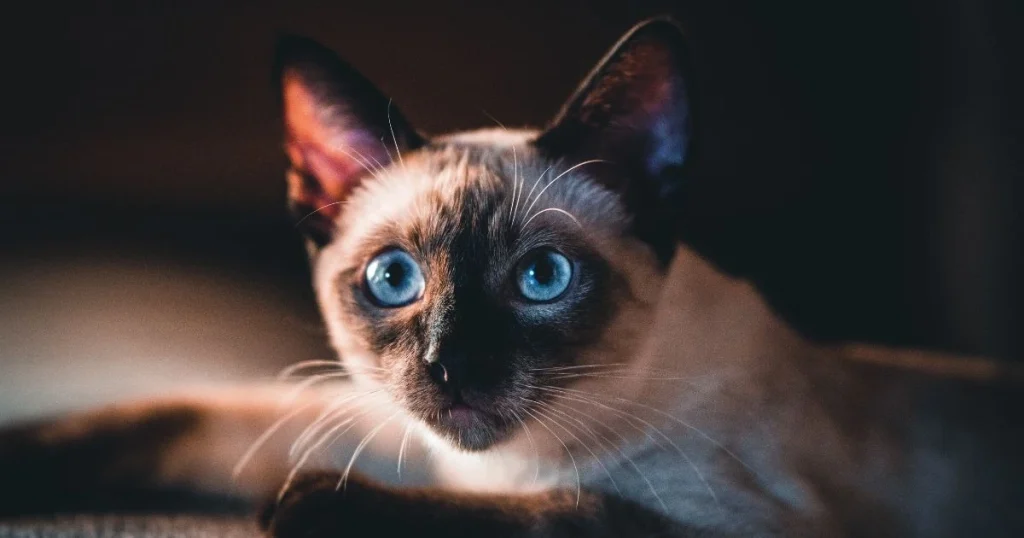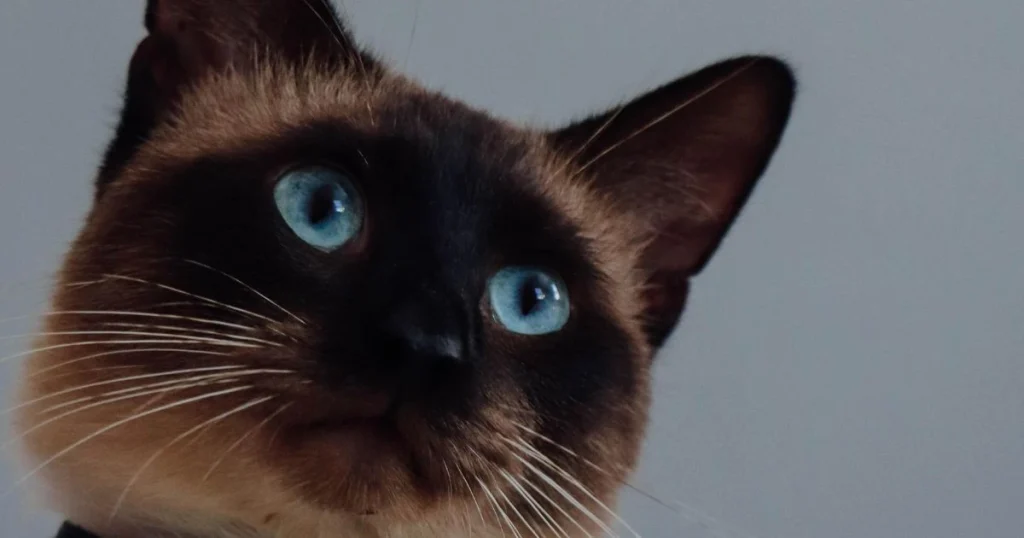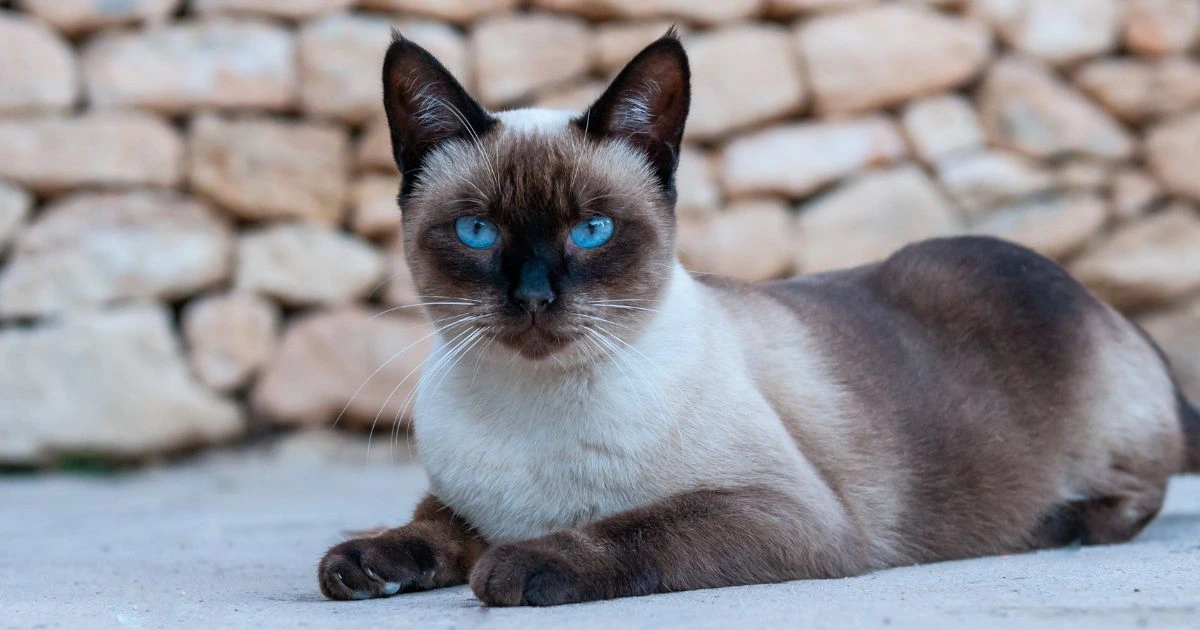Siamese Cat Breeder: How to Find a Reputable Source for Your New Kitten
Table of Contents
Siamese Cat Breeder: How to Find
Getting a Siamese cat is a happy choice that needs careful thought. A good Siamese cat breeder gives you a healthy kitten. They have the breed’s special traits like color points, almond-shaped eyes, and a fun personality.
Siamese cats are popular in the U.S., but not all breeders care about their health. Picking the right breeder means you avoid health problems. You also get a kitten that is well-socialized and fits the Siamese’s special heritage.
Siamese cats need special care, from health checks to early socialization. Good breeders focus on these things. This guide shows you how to find a trustworthy breeder. Look for ethics, health standards, and their dedication to the Siamese breed.

Key Takeaways
- Reputable Siamese cat breeders prioritize genetic health tests and breed standards.
- Avoid breeders who hide kitten origins or lack transparency about parent cats.
- Healthy Siamese kittens show curiosity and friendly behavior due to proper socialization.
- Certifications from organizations like TICA or CFA signal a breeder’s commitment to ethics.
- Ask about the breeder’s experience with Siamese-specific care and health history.
Understanding the Siamese Cat: A Historical Perspective
Siamese cats have a rich history, moving from ancient temples to modern homes. Their journey shows a blend of history and culture. To understand their importance, we must learn about their origins and how they became popular worldwide.
Where Are Siamese Cats From? Exploring Their Royal Thai Heritage
Siamese cats come from Thailand, once known as Siam. They were beloved by royalty. The Cat-Book Poems from the 1700s tell of their role as palace and temple guardians.
Their unique color points, like seal and blue, held sacred meanings. Monks and nobles carefully bred them. This history adds to their mystique.
The Evolution of the Modern Siamese in America
The first Siamese cats arrived in the U.S. in the late 1800s. Their sleek look and almond-shaped eyes won over breeders. Over time, American breeders made them more angular and distinct.
Today’s Siamese cat shows this evolution. Yet, some lines keep the older, rounder face known as “Traditional” or “Applehead.”
Why Siamese Cats Remain Popular Among American Cat Enthuasiasts
Siamese cats are more than just pretty faces. They are vocal, curious, and bond strongly with their owners. These traits make them unique.
Their history as symbols of status and their role in early cat shows also fascinate people. Whether it’s their beauty or personality, knowing their history helps choose a breeder who respects their heritage.
Types of Siamese Breeds You Should Know Before Contacting a Breeder
Choosing a Siamese kitten means knowing the types of Siamese breeds. This knowledge helps find a cat that fits your lifestyle. Each breed looks and acts differently, so it’s key to pick the right one.
Traditional (Applehead) Siamese: The Original Look
Traditional Siamese cats have classic looks from the early 20th century. They have round faces, strong bodies, and a calm nature. These siamese cat breeds are loved for their balanced looks, unlike modern cats.
Modern (Wedge) Siamese: The Contemporary Standard
In the mid-20th century, breeders focused on sleek, angular cats. Modern Siamese have sharp heads, long bodies, and are very vocal and active. Their unique look is what defines today’s show standards.
Colorpoint Variations and What They Mean
- Seal, blue, chocolate, and lilac: These are the four classic colorpoints in most breed standards.
- Rarer shades like red or lynx (tabby) patterns exist but are less common in mainstream siamese cat breeds.
- Color distribution depends on genetics, with cooler body temperatures making the contrast between points and body color more intense.
Thai Siamese: The Natural Breed Revival
Thai Siamese cats are a mix of the original Thai cats brought to the West and modern breeding. They have moderate features and are friendly. This type aims to keep the heritage alive, away from extreme looks.
Decoding Siamese Cat Temperament: What to Expect From Your New Companion
Siamese cat temperament is as striking as their sleek coat. These cats aren’t just visually distinctive—they’re vocal, curious, and deeply attached to their owners. Their personality blends charm with a strong will, making them ideal for those ready to engage their active minds.
Key traits to know:
- Vocal Communication: Expect a symphony of chirps, trills, and meows. Siamese cats “talk” to express needs, whether for food, play, or simply your attention.
- High Intelligence: They solve puzzles, open cabinets, and even learn tricks. Boredom can lead to mischief, so interactive toys are a must.
- People-Oriented: They crave companionship, often following you like a shadow. Think of them as four-legged family members, not solitary pets.
| Temperament Trait | Behavior Example | Owner’s Role |
| Vocal Needs | Constant “conversations” | Set aside time for interaction |
| Playfulness | Fetch enthusiasts, toy chasers | Provide daily play sessions |
| Curiosity | Exploring high spaces, investigating new objects | Cat trees and safe exploration zones |
Breeders prioritize socialization to nurture balanced siamese cat temperament. Ask about litter interactions and parental behavior—stable early experiences shape their confidence. While their demands may surprise first-time owners, their loyalty makes the effort rewarding. A well-bred Siamese isn’t just a pet—they’re a lifelong companion eager to share every moment of your day.

The Impressive Siamese Cat Longevity and Health Profile
Siamese cats are known for their striking appearance. But their siamese cat longevity is just as impressive. With proper care, they can live up to 15 to 20 years. This makes them one of the longest-lived domestic breeds.
Understanding their health needs is key to ensuring they thrive for decades. This knowledge helps keep your pet healthy and happy.
Common Health Issues in Siamese Cats
While healthy, siamese cats can face some health challenges. It’s important to watch out for:
- Progressive retinal atrophy (PRA), which can cause vision loss
- Amyloidosis, a liver-related disorder affecting organ function
- Respiratory issues linked to their distinctive facial structure
- Higher incidence of dental diseases needing regular vet checks
Genetic Screening: What Responsible Breeders Check For
Reputable breeders use DNA tests to identify risks early. These screenings target:
- PRA genetic markers
- Liver enzyme abnormalities
- Cardiac health assessments
- Dental predisposition analysis
Lifespan Expectations and Factors That Influence Longevity
Your cat’s siamese cat longevity depends on several factors. These include:
- Diet: High-quality protein and obesity prevention
- Environment: Indoor living reduces injury risks
- Care routines: Annual vet exams and dental cleanings
- Stress management: Enriched environments reduce health impacts
Proactive care and ethical breeding create a healthy, long-lived companion. Ask breeders about their health testing to ensure your future pet’s well-being.
Finding a Reputable Siamese Cat Breeder: Essential Qualities
Choosing the right siamese cat breeder means looking at their credentials, ethics, and practices. Here’s how to find breeders who care about your kitten’s health:
Breeder Credentials and Affiliations That Matter
First, check if the siamese cat breeder is part of groups like the Cat Fanciers’ Association (CFA) or The International Cat Association (TICA). These organizations have rules for breed standards and ethics. Look for breeders who show their certifications or club memberships online.
The Importance of Health Testing and Guarantees
Good breeders test for genetic issues like hypertrophic cardiomyopathy (HCM. They should offer guarantees for health problems like heart defects or breathing issues. A reliable siamese cat breeder will show proof of these tests for each kitten.
Socialization Practices of Top Breeders
Top breeders start socializing kittens early. They do things like:
- Handling by multiple people daily
- Exposure to gentle sounds and household items
- Playtime with toys and other pets
This helps kittens become confident and friendly with people.
Responsible Breeding Practices and Ethics
Ethical breeders only have one or two litters per year per mother cat. They retire breeding cats by age 5–7 and support buyers for life. Stay away from breeders who rush you or hide health info about the parents.
What Sets High-Quality Siamese Cat Breeders Apart From the Rest
Top-tier siamese cat breeders are known for their ethical practices. They see breeding as a way to better the breed’s health and standards. Here’s how to find them:
- Health-First Mindset: They share detailed genetic test results and prove certifications like CFA or TICA memberships.
- Transparency: Their websites showcase breeder licenses, past litters, and client testimonials.
- Long-Term Support: They offer post-adoption guidance, often providing contacts for veterinarians who specialize in Siamese care.
| Aspect | Reputable Breeders | Poor Practices |
| Health Testing | Publicly list OFA heart/musculoskeletal evaluations | No documentation provided |
| Kitten Socialization | Expose kittens to household sounds and gentle handling | Kittens kept in isolation |
| Contract Terms | Include spay/neuter agreements and return policies | Offer verbal promises without written proof |
Look for breeders who share videos of their cattery environment and openly discuss breeding goals. A quality siamese cat breeder will also ask you questions about your lifestyle to ensure a good match. Prioritize those who provide references from past buyers—this proves their confidence in their work.
Key Questions to Ask Your Siamese Cat Breeder
Finding the right siamese cat breeder needs careful research and direct questions. This guide helps you check their practices and see if they meet your needs. Here’s how to ask the right questions:
Health and Genetic Questions That Responsible Breeders Welcome
Ask for proof of:
- Genetic screening results for heart disease or breathing problems.
- Vaccination records for the kitten and its parents.
- Health guarantees for any birth defects or inherited illnesses.
“A reputable breeder should openly share test results and answer questions about lineage health histories,” says the Cat Fanciers’ Association.
Kitten Socialization and Early Development Inquiries
Find out how the breeder raises kittens:
- Do they interact with children/pets during socialization?
- Are they exposed to common household sounds (vacuums, doorbells) before adoption?
- Are grooming sessions (nail trimming, brushing) part of their routine?
Post-Adoption Support: What Should Be Offered
Make sure the siamese cat breeder is committed after you buy:
- Availability for questions in the first year
- Contract terms if you need to return the cat
- Access to educational resources on care and behavior
Good breeders are open and honest. Stay away from those who don’t want to talk about health or support.
Red Flags That Signal a Problematic Siamese Breeder
Looking for a siamese cat breeder means knowing what to watch out for. This part talks about signs that a breeder might not be ethical or healthy.
Warning Signs in Breeding Facilities
A safe place for cats is essential. Look out for:
- Too many cats in a small, dirty space
- Strong smells from dirty litter areas
- Cats that look sick or are not well-groomed
- No outdoor space or natural light for the cats
Concerning Breeder Behaviors and Responses
Good siamese cat breeders are open. Watch out if a breeder:
- Doesn’t answer questions about health checks or vet visits
- Won’t give references from past buyers
- Wants you to decide fast without seeing the place
- Can’t show health or vaccination records
Contract Issues to Watch For
A good contract protects both you and the breeder. Stay away from:
| Red Flag | What to Do |
| No health guarantees for genetic issues | Ask for a written warranty for at least 2 years |
| Rules that punish you for returning a sick kitten | Look for breeders with a 14-day health check period |
| Unclear vaccination plans | Make sure all core vaccines are given before you take the kitten |
“Ethical breeders are open. A contract should never feel like a trap,” says the Cat Fanciers’ Association (CFA).
Prices are important too. Be cautious of very cheap or very expensive kittens. Always see the facility in person. Watch how the cats act with their space and people.
Preparing for Your Siamese Kitten: Costs and Considerations Beyond the Purchase Price
Getting a Siamese cat is more than just the initial cost. It means planning for ongoing expenses and lifestyle changes. Here’s what you need to know about the financial and practical aspects.
“A well-cared-for Siamese cat demands consistent investment in health, enrichment, and safety.”
Key Financial Categories
- Initial Costs: Vaccinations, microchipping, and first vet visit ($300–$500)
- Monthly Essentials: Premium diet ($40–$60/month), grooming supplies ($20–$30/month)
- Health Reserves: Emergency funds for breed-specific issues like respiratory disorders or dental care
| Expense Type | Typical Range | Why It Matters |
| Veterinary Care | $1,200–$2,000/year | Covers annual checkups and possible treatments for genetic issues |
| Enrichment Supplies | $150–$300/year | Puzzle toys, tall cat trees, and interactive feeders for their high energy |
Think about making your home Siamese-friendly. This includes window perches for sunbathing and scratch-resistant furniture. Also, plan for pet sitting that knows how to handle their vocal nature when you’re away.
Planning ahead helps you meet your Siamese cat’s needs without breaking the bank. Focus on quality over saving money to ensure their long-term health and happiness.

Conclusion: Making Your Siamese Cat Adoption a Rewarding Experience
Choosing the right Siamese cat breeder is key. It ensures your new pet reflects the breed’s rich history and health standards. A good breeder focuses on genetic testing, socialization, and ethics. This helps your kitten stay healthy and happy for life.
Supporting ethical breeders helps the Siamese breed thrive. Working with a certified breeder from TICA or CFA preserves the breed’s beauty and spirit. Every ethical breeder you choose fights against bad practices that hurt cats and owners.
Your careful choice of a breeder sets the stage for a lifelong friendship. A well-bred Siamese cat brings beauty and a deep bond. This choice enriches your life and the breed’s future, making the search worthwhile.
FAQ
What is the lifespan of a Siamese cat?
Siamese cats can live up to 15 to 20 years. This makes them one of the longest-living cat breeds. Their lifespan depends on genetics, diet, and healthcare.
Where do Siamese cats originate from?
Siamese cats come from Thailand, once known as Siam. They were seen as sacred animals and were loved by royalty.
What are the different types of Siamese breeds?
There are many Siamese breeds, like Traditional (Applehead) and Modern (Wedge). There are also Colorpoint variations and the Thai Siamese. Each has its own look and standards.
What is the typical temperament of Siamese cats?
Siamese cats are known for being vocal, smart, and loving. They love being around people and often become very attached to their owners.
What health issues are common in Siamese cats?
Siamese cats might face health problems like progressive retinal atrophy and respiratory issues. They can also have dental problems. Good breeders test for these issues to lower the risk.
How can I find a reputable Siamese cat breeder?
Look for breeders with credentials from groups like CFA or TICA. Visit their place to see how they breed. Ask about health tests they do.
Are Siamese cats known for any specific colors?
Yes, Siamese cats are famous for their colorpoint patterns. They come in seal, blue, chocolate, and lilac. There are also rarer colors.
What should I expect regarding the socialization of my Siamese kitten?
Good breeders start socializing kittens early. They get used to different sounds, handling, and grooming. This helps them adjust well to their new home.

